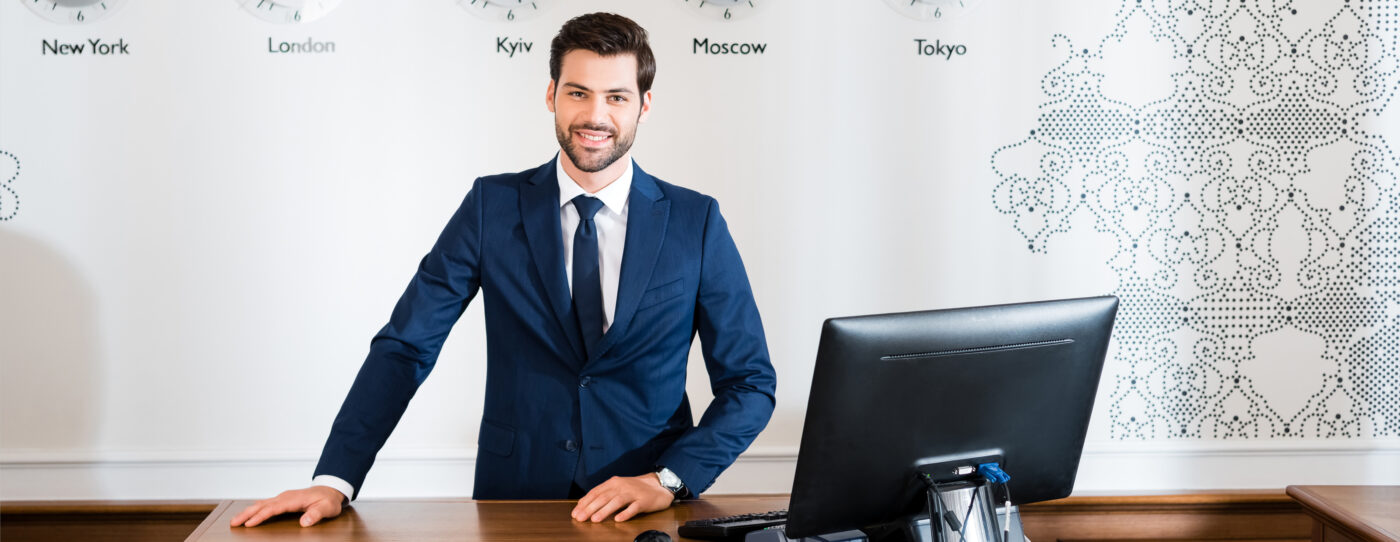Exploring the Impact of Staff Appreciation on Enhancing Hotel Work Environments
Various sectors have bounced back in the current, largely post-pandemic era, with staffing and service levels nearing or equalling those before the pandemic. Research indicates that the accommodation and food service industry creates one in five new jobs. Despite this, hotels and other hospitality enterprises continue to grapple with staffing issues. This article delves into the specific challenges of staffing and retention in the hospitality sector, with a focus on hotels. We investigate how employee satisfaction correlates with retention the effect of recognition on staff contentment, and discuss staff appreciation strategies that elevate morale, improve the workplace culture, and more.
Understanding How Staff Appreciation Transforms Hotel Workplaces
Before addressing the obstacles hoteliers face and the measures hotels can take to address current staffing challenges, it’s crucial to comprehend staff appreciation and its significance.
Defining Staff Appreciation
Staff appreciation is the practice of expressing gratitude towards employees. More than just a concept, it encompasses a variety of actions and activities that recognise employees’ achievements, efforts, and growth. Employers engage in staff appreciation and employee recognition to acknowledge individual accomplishments, offer positive feedback, and show gratitude to those who contribute to their business’s success. Employers demonstrate this recognition through staff appreciation ideas, events, and programs, expressing their gratitude for employees’ direct and indirect contributions. Employee recognition can be public or private and may include gifts, services, events, enhanced benefits, or other perks.
The Significance of Staff Appreciation
When employees feel acknowledged, recognised, and valued, they are more inclined to excel. Recognition informs employees that their company values them, acknowledges their hard work, and appreciates their contributions. Appreciated employees feel more secure in their jobs, perceiving themselves as integral to the business. This motivates them to maintain their respected, valued, and secure positions. Staff appreciation can enhance morale, productivity, and profits. Research in healthcare demonstrates that feeling valued significantly impacts employees’ well-being and mental health. Effective staff appreciation strategies can reduce employee burnout risk, keeping staff motivated and improving the workplace atmosphere. Without recognition, it’s easy for employees to lose motivation and interest in their roles.

Challenges in Modern Hotel Staffing
Despite an increase in hospitality job opportunities, many hotels struggle to fill vacancies. The Office for National Statistics (ONS) reported that hospitality sector vacancies remain 48% higher than pre-Covid levels.
Common factors contributing to staffing and retention challenges in hotels include:
– Seasonal demand fluctuations
– Unsociable working hours
– Perceived lack of career advancement
High staff turnover in hospitality due to these factors leads to reduced productivity, lower profits, and increased staffing costs. To attract motivated workers and enhance retention rates, hotels should consider staff appreciation as a starting point.
Understanding the Relationship Between Staff Appreciation and Employee Retention
The hospitality and food services sectors experience a notably high annual turnover rate of 73.8%, exceeding many other industries. According to a study by The Achievers, the primary reason employees leave their jobs is a lack of recognition. With 65% of survey participants indicating they don’t feel sufficiently recognised at work, the correlation between inadequate staff appreciation policies and high turnover rates in the hospitality industry becomes apparent.
Best Practices and Pitfalls in Staff Appreciation
Experienced hospitality managers understand the challenge of navigating the employee recognition paradox. While everyone seeks and needs acknowledgement, excessive recognition can lead to feelings of demotivation or being undervalued when it’s absent. Similarly, excessive praise from leaders can lead to a reduced drive among employees to earn it. To maintain a healthy balance in your hotel, consider these dos and don’ts of employee recognition.
What to Do:
Rather than resorting to clichéd staff appreciation methods like pizza parties or gift bags, genuinely acknowledge employees’ efforts through meaningful recognition.
• Regularly Engage with Employees
Frequently engage in informal conversations with staff. Inquire about their day or activities. These casual interactions can make you more approachable and help employees feel individually valued.
• Offer Competitive Salaries
One of the most effective forms of appreciation is fair compensation. To retain current staff and attract new, motivated employees, consider raising wages. A survey of 180 hospitality businesses in New York revealed that 53% plan to increase salaries to attract and retain staff, with 73% having already raised wages in 2022.
• Implement an Employee Recognition Program
Develop an employee recognition program if you don’t have one. Collaborate with team leaders across different departments to create tailored programs for each area, including housekeeping, maintenance, front desk, and F&B. Establish a hotel-wide program to acknowledge exceptional achievements, such as Employee of the Month or Quarter, and annual awards for front-facing and behind-the-scenes staff.
• Encourage Career Development
Employees often seek workplaces offering various growth opportunities, including financial, professional, career advancement, and personal (like remote work or work-life balance). Promote these opportunities during recruitment to attract candidates with a higher likelihood of long-term commitment. Regularly discuss career aspirations with team members and help outline a path for growth.
• Utilize Positive Reinforcement
Alongside constructive criticism, provide positive feedback for well-executed tasks or exceptional guest service. Positive reinforcement can strengthen manager-employee relationships and make staff more receptive to future feedback.
Avoiding the pitfalls of excessive or insincere recognition while embracing these thoughtful practices can significantly impact employee retention and satisfaction in the hospitality industry.

Avoiding Missteps in Staff Appreciation
To foster a genuine and sincere culture of staff appreciation in your hotel, it’s crucial to steer clear of certain practices.
• Be Specific in Recognition
Personalise your appreciation efforts and avoid vague or non-genuine praise. Generic or insincere recognition can be perceived as more detrimental than no recognition at all. Tailor your appreciation to make it meaningful and sincere.
• Equitable Recognition
Be cautious when recognising certain employees over others for behaviours that many exhibit. Publicly acknowledging some employees for achievements that others consistently demonstrate can create discontent and diminish the morale of those who feel their efforts are overlooked. Instead, focus on celebrating individual growth milestones rather than comparing staff against uniform standards.
• Maintain Consistency in Incentives
While rewards should not be expected for minimal effort, employees should trust the consistency of the hotel’s reward or incentive program. Sudden changes to established bonus or incentive schemes can cause disappointment or frustration among staff. If changes are necessary, provide adequate advance notice.
• Foster Interdepartmental Interaction
In the busy environment of hotel operations, it’s easy for departments to become insular. Counter this by organising hotel-wide appreciation events and meetings that bring together employees from all departments. This approach helps build a sense of unity and emphasises that everyone is part of a larger team. Encourage communication and recognition across different departments to cultivate an atmosphere of gratitude.
• Acknowledge Key Milestones
Don’t overlook significant events like employee anniversaries, birthdays, retirements, or graduations. Celebrating these moments can enhance the sense of community and purpose among the staff, even if it seems like a small gesture.
• Inclusive Competitions
While friendly competitions can be engaging and boost productivity, avoid setting up contests that create winners and losers in the context of staff appreciation. Ensure that any competition fosters teamwork and makes every employee feel valued and recognised, contributing to an inclusive and positive workplace culture.
Enhancing Workplace Culture with Staff Appreciation Techniques
Elevate your hotel’s work environment and increase employee satisfaction by implementing these effective recognition strategies and staff appreciation methods.
1. Relate Hotel Successes to Employee Efforts
Make a point to connect staff appreciation initiatives with specific achievements within the hotel. For instance, if the hotel surpasses revenue targets, incorporate this success into your appreciation efforts. It’s vital for staff to recognise their individual contributions to the hotel’s overall achievements. Celebrate these successes with events like a company picnic, where each department’s role in achieving these goals is acknowledged and appreciated.
2. Embrace Flexible Scheduling
In today’s evolving work culture, offering flexible scheduling options has become increasingly important. Work alongside your employees to create schedules that align with their optimal working hours and support a healthy work-life balance.
3. Prioritise Comprehensive Training
Often, busy hotel managers may overlook the importance of thorough training for new staff, especially in an industry with high employee turnover. Investing in robust training programs, including brand courses and virtual training sessions, equips new employees with essential skills and confidence, leading to better job performance and lower turnover rates.
4. Implement Incentive Programs
Incentive programs can significantly improve employee retention, productivity, and satisfaction while reducing costs. Determine what motivates your staff, whether it’s public recognition, extra time off, bonuses, or other rewards, and tailor your incentive programs accordingly.
5. Make Appreciation a Habit
Regularly acknowledging individual employees and celebrating hotel accomplishments, even in small ways, can cultivate a supportive and appreciative work atmosphere. Integrating recognition into daily routines ensures that appreciation is a constant practice, not just an occasional gesture.
Expanding Staff Appreciation Ideas
For additional inspiration on staff appreciation, consider these ideas:
1. Cost-Free Appreciation Methods
Simple acts like offering private or public feedback can effectively convey your appreciation. Acknowledge staff members on social media, write personal thank-you notes, or assist an employee with a challenging task.
2. Understanding Employee Appreciation Day
Employee Appreciation Day is celebrated nationally on the first Friday of March. It’s a day for managers and team leaders across industries to focus on recognising and appreciating their staff. Many companies even create their unique appreciation holidays.
3. Hotel Celebrations on Employee Appreciation Day
Make Employee Appreciation Day special with a grand celebration for your staff. Organise events with live entertainment, fun games, or a themed party like “Movie Night” or “Island Paradise.” Use this opportunity to recognise individual employees and award departments, enhancing team spirit.
Engaging with Your Team on Appreciation Preferences
To find the most impactful staff appreciation methods, directly involve your team in the decision-making process. Open communication is key, not only in strengthening staff relationships but also in understanding their needs and aspirations. The more you engage with your hotel staff, the better you can cater to their preferences, mirroring the attention you give to guest relations.


